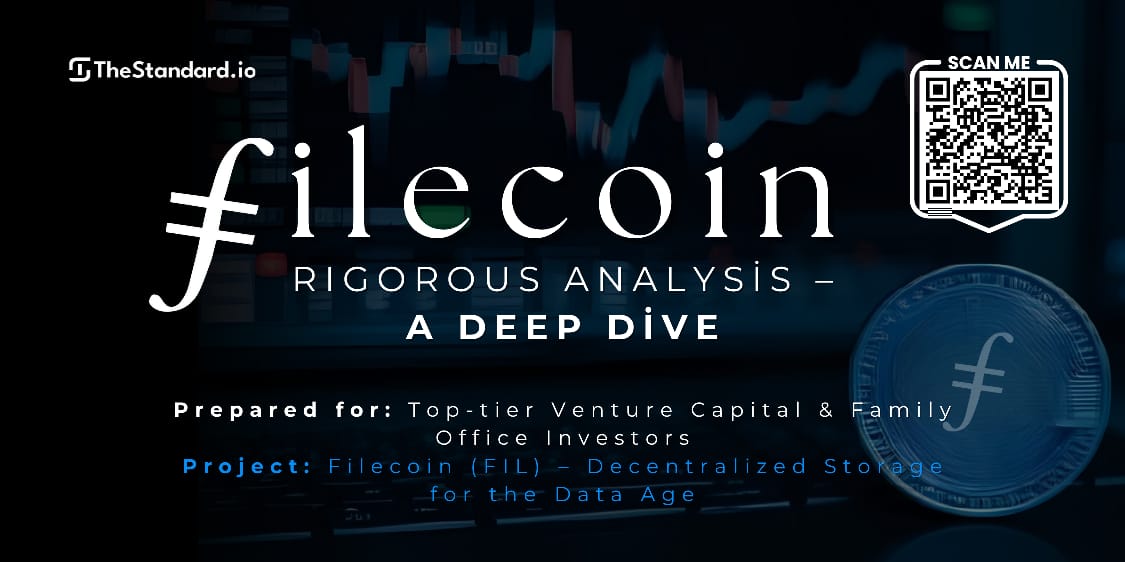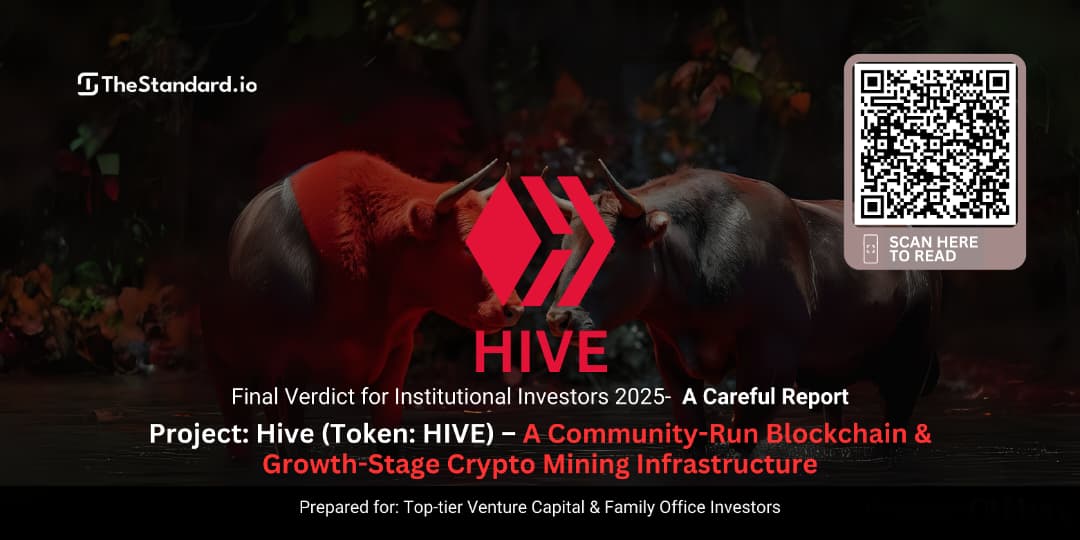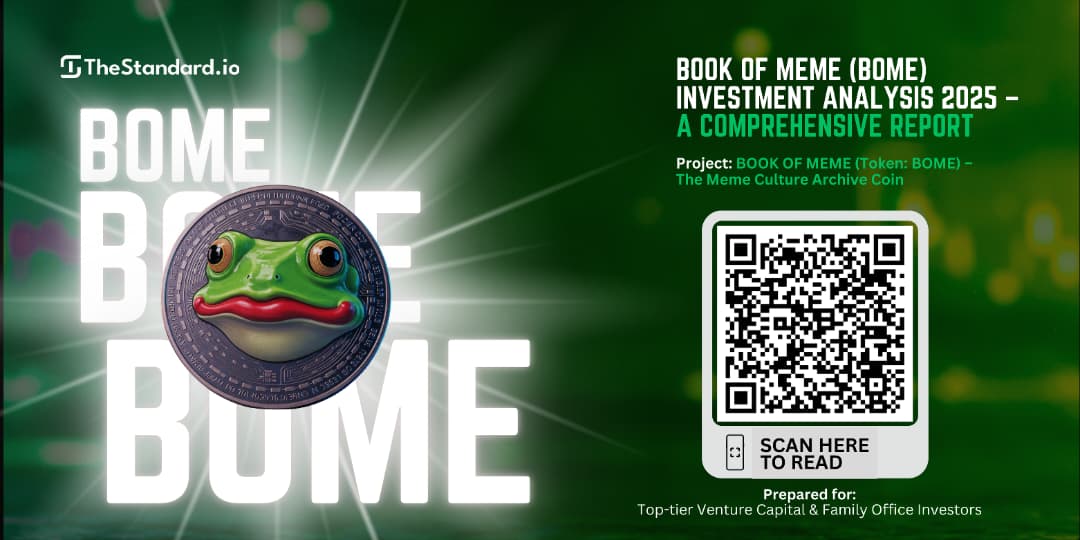Filecoin (FIL) Rigorous Analysis – A Deep Dive

Prepared for: Top-tier Venture Capital & Family Office Investors
Project: Filecoin (FIL) – Decentralized Storage for the Data Age
Date: August 4, 2025
Executive Summary
Filecoin (FIL) is a pioneering decentralized storage protocol launched by Protocol Labs, enabling users and enterprises to rent spare disk capacity via on-chain storage deals. Backed by a $200 million ICO in 2017 and designed using proof-of-replication and proof-of-spacetime consensus, it has become the backbone of the Web3 storage movement—commercially positioning itself as an answer to centralized cloud services.
As of mid‑2025, Filecoin operates over 11 EiB of network storage, with utilization growing steadily, and supports enterprise staking through the Filecoin Virtual Machine (FVM). Yet the token trades at a small fraction of its 2021 all-time high (~$237), currently floating in the $2.50–$3.50 range. While some price forecasts see FIL rebounding to $3‑4 by year-end, others warn of potential downside to $0.40 in bearish scenarios. For investors focused on decentralized infrastructure (DePIN) and long-term utility, FIL offers meaningful exposure—but must also be navigated with caution given volatility and inflationary dynamics.
Investment Highlights
1. Real-World Infrastructure Value
Filecoin hosts decentralized data storage deals ranging from archival datasets for academic institutions to enterprise backups, with major clients like CERN, Archive.org, and Web3 firms using its network. Q3 2023 saw a 45% increase in active storage deals, growing utilization from ~7.6% to ~12.6% of total network capacity (≈11 EiB).
Messari releases Q3 State of Filecoin report. Storage by 45% – Messari
2. DePIN Leadership
Filestate instruments (e.g. Retrieval Markets, Content Delivery via Project Saturn, FVM smart contract support) position FIL as a foundational asset for decentralized physical infrastructure networks (DePIN). The network now supports ~2,900 stakers with ~9 million FIL in lending pools.
Messari releases Q3 State of Filecoin report. Storage by 45% – Messari
3. Token Utility Strengthening
Filecoin’s native token is actively used in micro-economics: clients pay retailers in FIL, miners stake FIL to secure storage deals, and participants pay data retrieval fees. The introduction of FVM unlocks DeFi apps, which increases on-chain activity and diversifies demand drivers.
The Upload Vol 8: The Filecoin Masterplan – Reddit
Strategic Importance
Filecoin sits at the intersection of two megatrends: the decentralization of storage and growing global demand from AI, Web3, and enterprise data needs. As cloud storage costs rise and data sovereignty becomes a focal point, FIL’s model offers a transparent, stake-based system for securing and retrieving data in a decentralized way. Its narrative aligns well with investors betting on decentralization of core infrastructure.
Several large-scale builders—such as OpenAI platforms and NFT metadata storage systems—are integrating FIL to secure digital assets. In a world where centralized infrastructure is under increased regulatory scrutiny, FIL is positioning itself as a permissionless, global ledger of secure storage.
Market Position & Competitive Advantage
Despite token price corrections, Filecoin continues to lead the Web3 storage sector. Competing solutions like Arweave or Storj exist, but few boast FIL’s scale—over 11 EiB pledged storage and enterprise integrations.
FIL’s edge lies in a three-part moat:
- Broad network adoption by providers
- Enterprise usage for archival data
- Smart-contract-driven storage economy (via FVM)
At ~$3 per token, FIL also represents a relatively cheap entry into the decentralized infrastructure layer, compared to earlier-run coins.
Risks & Mitigations
1. Token Inflation & Supply Pressure: FIL still issues block and storage rewards, inflating supply significantly (over 65% per year at peak network growth). This may cap token appreciation unless demand scales quickly.
Filecoin inflation rate concerns… – Reddit discussion
2. Low Utilization: As of Q3 2023, only ~12.6% of storage capacity was used. High unused surplus may indicate overcapacity and insufficient economic demand.
Messari releases Q3 State of Filecoin report. Storage by 45% – Messari
3. Competition & Technical Complexity: Deploying FIL requires infrastructure planning and tooling, which may present adoption friction among enterprise and Web2 users.
Shoutout to those who still hold this coin… – Reddit commentary
4. Price Vulnerability: FIL has dropped over 99% from its all-time high (~$237 in 2021) to below $3 in 2025. Some models project further downside to ~$0.40 in bearish price forecasts.
Filecoin Price Prediction 2025: Technicals Warn of Steep Decline Ahead – CCN
5. Regulatory Uncertainty: While FIL is not a security, extensive inflation and enterprise penetration may invite new scrutiny around token classification or data compliance.
Are Memecoins Securities? What the SEC Says – CoinDesk (applied by analogy)
Tokenomics Summary
FIL’s issuance model splits block and storage rewards across miners and early contributors; total supply progressively inflates until genesis supply plus future issuance from storage deals reaches a capped theoretical level. Initial supply was allocated: ~70% mining, 15% Protocol Labs, 10% ICO investors, 5% Filecoin Foundation. This headwind creates ongoing supply pressure.
However, enhancements (like burning from retrieval rents or adding scarcity mechanisms) are under discussion but not yet implemented. Investors should monitor proposals like NV25 or FIP updates to control inflation.
Introduction to Cryptocurrencies… – Reddit
Ecosystem & Adoption
Enterprise & Archival Clients: Organizations such as Internet Archive, CERN, Victor Chang Cardiac Research Institute use FIL for backup and content storage. Notably, the Filecoin Foundation donated 50,000 FIL (~$10M) to Internet Archive in April 2021.
Filecoin donation to Internet Archive – Wikipedia
Staking & DeFi Integration: Platforms like Glif, HashKing, and stFIL.io facilitate FIL staking and borrowing on FVM contracts, with nearly 9M FIL pledged by ~2,900 users.
Messari releases Q3 State of Filecoin report. Storage by 45% – Messari
Growing Developer Activity: FVM allows building datasets marketplaces, DAOs, and trustless reputation systems on top of Filecoin storage.
The Upload Vol 8: The Filecoin Masterplan – Reddit
Strategic Outlook
Short-Term (3–6 months):
Catalysts include the upcoming F3 network upgrade, developer conferences, and rising demand from AI data players. If these materialize effectively, price could strengthen toward $2.80–$3.50.
Should You Buy Filecoin in 2025? – HelloSafe
Medium-Term (6–18 months):
If adoption into DeFi and partnerships in AI applications accelerate, FIL may test $4–$6 zone according to multiple forecasts, assuming broader market recovery.
Filecoin price prediction 2025-2031: What’s the future for FIL? – CryptoNews
Long-Term (2–5 years):
In scenarios where decentralized data storage becomes mainstream, FIL could reach bullish targets of $10–$15+, particularly in bullish macro cycles or if token usage scales with storage demand growth.
Filecoin price prediction: Third party price target – Capital.com
Final Verdict for Institutional Investors
1. Strategic Recap: Filecoin’s Core Thesis
Filecoin (FIL), the decentralized data storage protocol built on the InterPlanetary File System (IPFS), was envisioned to challenge centralized cloud giants like Amazon Web Services, Google Cloud, and Microsoft Azure. Unlike traditional blockchains, Filecoin’s utility doesn’t rest on speculative transfers or meme power—it’s a Web3 infrastructure layer with long-term value potential rooted in decentralized storage at scale.
Filecoin allows users to rent out excess hard drive space and be compensated in FIL tokens, creating a distributed, peer-driven cloud alternative. Its technology stack directly supports decentralized apps (dApps), NFT hosting, AI model storage, and more. As noted in “What Is Filecoin (FIL)?” by Binance Academy, Filecoin “incentivizes a global network of computers to provide file storage and retrieval services”
2. Market Position & Institutional Access
Current Footprint and Tokenomics
As of Q3 2025, Filecoin is one of the most capitalized infrastructure-layer tokens, with a market cap hovering between $2–$3 billion and deep listings across Coinbase, Binance, Kraken, and institutional OTC desks. It has a circulating supply of approximately 515 million FIL out of a max 2 billion tokens. Token unlocks are ongoing and follow a long-tail emission curve to compensate miners and ecosystem participants.
Its current usage includes integrations with Chainlink, Ethereum, Solana, and even off-chain protocols like OpenAI’s research partners. More than 1,600 storage providers globally now support the Filecoin network, including data centers in Asia, Europe, and North America.
Institutional Integration
According to a detailed report from Messari, Filecoin’s 2024 network capacity exceeded 21 EiB (exbibytes), putting it in direct comparison with leading cloud platforms in raw data potential. The report highlighted that Filecoin “has matured from a theoretical protocol into a decentralized cloud utility” “Filecoin Market Map,”.
3. Core Investment Case for Family Offices and VCs
Decentralized Data is the Next Frontier
Filecoin is uniquely positioned to serve the emerging demand for censorship-resistant, tamper-proof storage. This use case is now critical in a world of:
- AI model checkpoints (e.g., LLaMA, Mistral)
- Scientific datasets
- Government and NGO archival needs
- NFT metadata
- Enterprise backups with compliance oversight
The rise of Web3-native social platforms and autonomous agents further drives demand for backend storage on decentralized rails.
FIL as a Scarce Digital Commodity
FIL is not just a utility token. It’s a staking and governance asset that powers the network’s Proof-of-Replication and Proof-of-Spacetime mechanisms. As demand for decentralized storage rises, FIL plays a dual role: collateral for storage providers and payment for storage users.
Just as ETH powers Ethereum computation, FIL underwrites decentralized trust and access to the Filecoin network. This dual demand can drive organic token appreciation during growth cycles.
4. Strategic Entry Guidance
Optimal Allocation
For top-tier investors, Filecoin is not a speculative rotation play—it’s a core long-duration infrastructure asset in a digital commodities portfolio. Suggested positioning:
- Portfolio allocation: 1.5%–4% of crypto holdings
- Investment horizon: 3–5 years
- Custody: Cold storage preferred; institutional staking via Anchorage or Coinbase Prime
Accumulation Windows
Ideal accumulation zones align with heavy network growth (e.g., spike in client storage, integration with L2s, developer incentives). Watch for:
- Ecosystem announcements from Protocol Labs
- Deals with institutions or universities using decentralized archives
- Collaboration with LLM providers seeking decentralized AI storage
5. Risks for Institutional Review
Competitive Cloud Giants
Filecoin must continue innovating to compete with hyperscale cloud providers like AWS and Google Cloud. These companies offer better uptime and faster access, though Filecoin beats them on censorship resistance and decentralization.
Storage Utilization Gap
While Filecoin has enormous raw capacity, actual utilized storage remains under 10%. This utilization gap is a concern for valuation sustainability. It’s being addressed through ecosystem grants and onboarding efforts but remains a soft spot.
Token Inflation and Unlock Risk
FIL has a long emissions schedule, and while vesting is known, unlocks still create dilution pressure. According to TokenUnlocks, the next 12 months will see over 100M FIL enter circulation “FIL Token Unlock Schedule,”. This should be carefully modeled when entering large positions.
6. Institutional-Grade Developments & Sources
Two critical developments supporting Filecoin’s investment-grade narrative include:
1. Filecoin Saturn: Edge Delivery Network
Launched in 2024, Saturn allows data to be quickly distributed from Filecoin nodes to end-users—making Filecoin not just a storage network, but a decentralized CDN (Content Delivery Network). The Verge covered this pivot as a major leap: “Filecoin Saturn Aims to Replace Akamai With Decentralized Edge Delivery”.
2. Integration with Ethereum L2s & Rollups
Filecoin now offers off-chain data archiving for Ethereum L2s like Arbitrum and Optimism. This allows rollups to store historical data in a decentralized way, solving one of Ethereum’s critical infrastructure pain points.
“Ethereum L2s Choose Filecoin for Data Availability Layer,”
These two developments dramatically increase Filecoin’s moat and expand its institutional relevance.
7. Final Executive Summary
Filecoin stands apart from speculative assets. It’s not a meme. It’s not a fleeting narrative. It is a bet on the next generation of cloud infrastructure—where decentralization, security, and censorship resistance are not optional but foundational.
Its tokenomics are mature, its team (Protocol Labs) is among the most respected in crypto, and its roadmap includes some of the deepest integration with real-world data problems in Web3. The ongoing support from the Ethereum ecosystem, AI communities, and academic researchers only amplifies its credibility.
For family offices and VCs, FIL offers exposure to a trillion-dollar data economy from the ground up—paired with the durability of a commodity token and the upside of a decentralized storage revolution. It's a high-conviction infrastructure asset that aligns with long-duration capital goals.
Bottom Line: If Ethereum is the global settlement layer, Filecoin is the decentralized cloud drive of the Web3 world. Don't ignore it.
Thank you for taking the time to read this article. We invite you to explore more content on our blog for additional insights and information.
https://www.thestandard.io/blog
"If you have any comments, questions, or suggestions, please do not hesitate to reach out to us at [ https://discord.gg/K72hed6FRE ]. We appreciate your feedback and look forward to hearing from you."
Disclaimer
Please note that this analysis is based on publicly available information as of June 2025. Investors are strongly advised to conduct comprehensive due diligence and consult with their financial advisors before making any investment decisions.
6 of the best crypto wallets out there
Vulputate adipiscing in lacus dignissim aliquet sit viverra sed etiam risus nascetur libero ornare non scelerisque est eu faucibus est pretium commodo quisque facilisi dolor enim egestas vel gravida condimentum congue ultricies venenatis aliquet sit.
- Id at nisl nisl in massa ornare tempus purus pretium ullamcorper cursus
- Arcu ac eu lacus ut porttitor egesta pulvinar litum suspendisse turpis commodo
- Dignissim hendrerit sit sollicitudin nam iaculis quis ac malesuada pretium in
- Sed elementum at at ultricies pellentesque scelerisque elit non eleifend
How to choose the right wallet for your cryptos?
Aliquet sit viverra sed etiam risus nascetur libero ornare non scelerisque est eu faucibus est pretium commodo quisque facilisi dolor enim egestas vel gravida condimentum congue ultricies venenatis aliquet sit quisque quis nibh consequat.

How to ensure the wallet you’re choosing is actually secure?
Integer in id netus magnis facilisis pretium aliquet posuere ipsum arcu viverra et id congue risus ullamcorper eu morbi proin tincidunt blandit tellus in interdum mauris vel ipsum et purus urna gravida bibendum dis senectus eu facilisis pellentesque.
What is the difference from an online wallet vs. a cold wallet?
Integer in id netus magnis facilisis pretium aliquet posuere ipsum arcu viverra et id congue risus ullamcorper eu morbi proin tincidunt blandit tellus in interdum mauris vel ipsum et purus urna gravida bibendum dis senectus eu facilisis pellentesque diam et magna parturient sed. Ultricies blandit a urna eu volutpat morbi lacus.
- At at tincidunt eget sagittis cursus vel dictum amet tortor id elementum
- Mauris aliquet faucibus iaculis dui vitae ullamco
- Gravida mi dolor volutpat et vitae lacus habitasse fames at tempus
- Tellus turpis ut neque amet arcu nunc interdum pretium eu fermentum
“Sed eu suscipit varius vestibulum consectetur ullamcorper tincidunt sagittis bibendum id at ut ornare”
Please share with us what is your favorite wallet using #DeFiShow
Tellus a ultrices feugiat morbi massa et ut id viverra egestas sed varius scelerisque risus nunc vitae diam consequat aliquam neque. Odio duis eget faucibus posuere egestas suspendisse id ut tristique cras ullamcorper nulla iaculis condimentum vitae in facilisis id augue sit ipsum faucibus ut eros cras turpis a risus consectetur amet et mi erat sodales non leo.

Subscribe to our newsletter.
Get the latest alpha from us, and the Chainlink build program in an easy-to-read digest with only the best info for the insider.
It's an easy one-click unsub, but I bet you won't; the info is just too good.

Try the future of borrowing today.
Don't wait. It's easy to open a free smart vault
then start earning a yield and borrowing today.
0xf5A27E55C748bCDdBfeA5477CB9Ae924f0f7fd2e
USDs Contract on Arbitrum:
0x2Ea0bE86990E8Dac0D09e4316Bb92086F304622d










